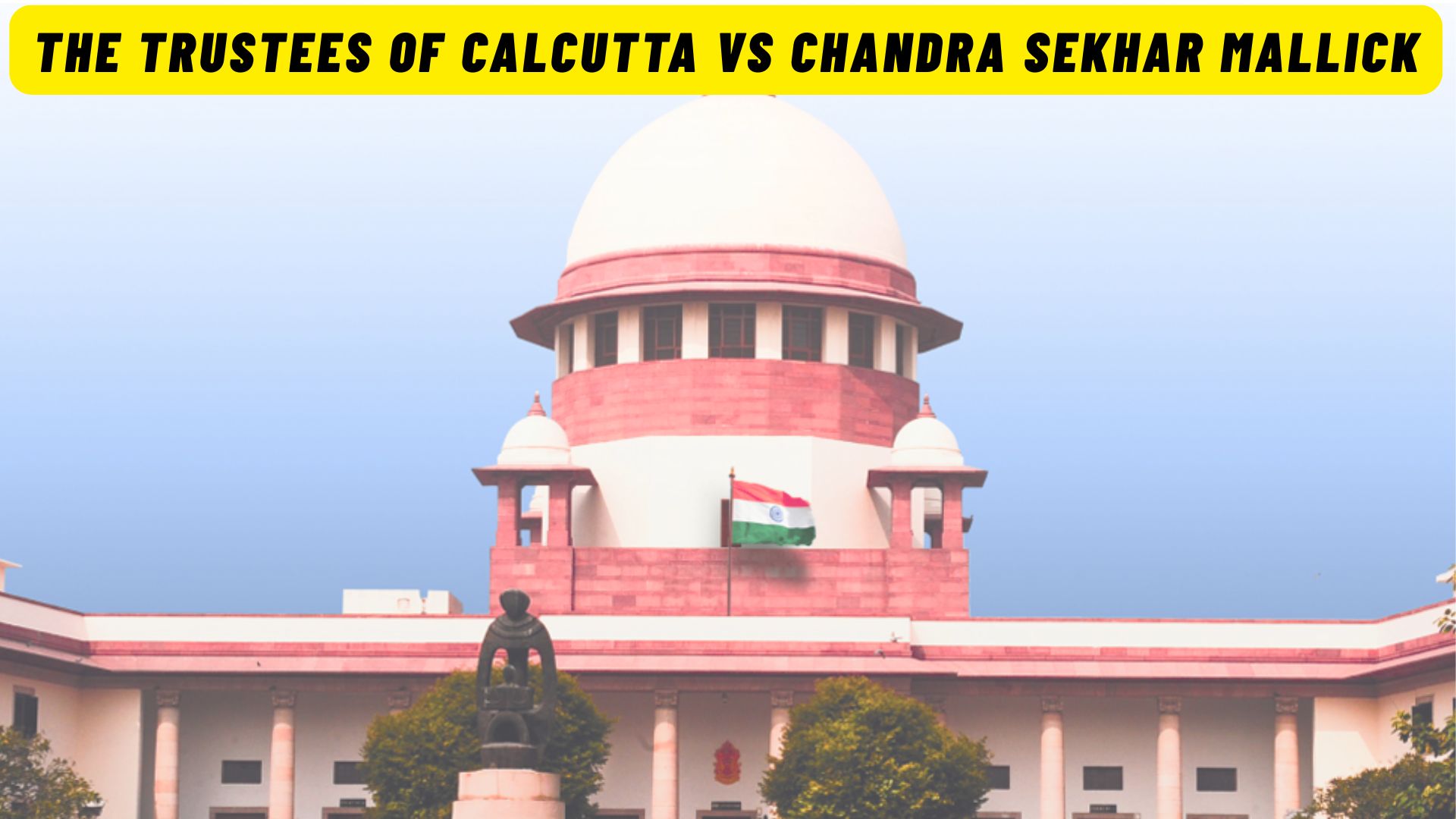
The Trustees for the Improvement of Calcutta (Appellant) Vs Chandra Sekhar Mallick and Others (1977)
In The Supreme Court of India
Case No: Civil Appeal No''s. 579-580 of 1976
The Trustees for the Improvement of Calcutta (Appellant)
Vs
Chandra Sekhar Mallick and Others (Respondent)
Date of Decision : 06-05-1977
Bench: Full Bench
Hon'ble Judges : M. Hameedullah Beg, C.J; Y. V. Chandrachud, J; V. R. Krishna Iyer, J; S. Murtaza Fazal Ali, J; P. S. Kailasam, J; P. N. Bhagwati, J; N. L. Untwalia, J
Advocates: P.K. Chatterjee, G.S. Chatterjee, D.P. Mukherjee, P.K. Mukherjee
Final Decision: Allowed
[Judgment Source]
https://www.courtkutchehry.com/Judgement/Search/AdvancedV2?docid=283283
All Citations
AIR 1977 SC 2034; (1977) 3 SCC 448; (1978) 1 SCR 136; (1977) 9 UJ 394
Facts of the Case
The respondents owned properties affected by a Street Scheme initiated by the Trustees for the Improvement of Calcutta under the Calcutta Improvement Act, 1911. The scheme proposed a betterment fee for properties that increased in value due to the improvements. Following objections and arbitration, fees were determined, which the respondents challenged before the Calcutta High Court. The High Court struck down Sections 78-B to 78-G and related rules as unconstitutional for excessive delegation and violation of Article 14.
Law Points Raised
1. Whether Sections 78A to 78G of the Calcutta Improvement Act, 1911, constituted excessive delegation of legislative power.
2. Whether these provisions violated Article 14 of the Constitution by being arbitrary or discriminatory.
3. Validity of Rules 11 to 21 framed under Section 137(3a) for appointment and procedure of arbitrators.
Acts / Provisions / Articles Referred
• Calcutta Improvement Act, 1911 — Section 137(3), Section 39, Section 78A, Section 78G, Section 86
• Constitution of India, 1950 — Article 14
Judgements Referred
Referenced prior rulings on excessive delegation and equality under Article 14, but no specific citations provided in text.
Obiter Dicta
The High Court’s delay in judgment delivery (15 months after conclusion of arguments) was criticized for causing superficial reasoning. Legislative schemes providing detailed mechanisms for assessment of betterment fees should not be lightly invalidated.
Ratio Decidendi
Sections 78A to 78G of the Calcutta Improvement Act provided a complete legislative policy and detailed procedural framework, leaving only the implementation to administrative bodies. This did not amount to excessive delegation and was consistent with Article 14.
Final Ruling
The Supreme Court set aside the Calcutta High Court’s judgment, upholding the validity of Sections 78A to 78G and Rules 11 to 21. Appeals were allowed.
Summary
This landmark judgment clarified that detailed statutory provisions enabling recovery of betterment fees do not amount to excessive delegation of legislative power when the legislature lays down clear policy and guidelines. The Court emphasized the importance of legislative frameworks in urban improvement schemes and upheld the constitutional validity of such measures.
[Judgment Source]
https://www.courtkutchehry.com/Judgement/Search/AdvancedV2?docid=283283